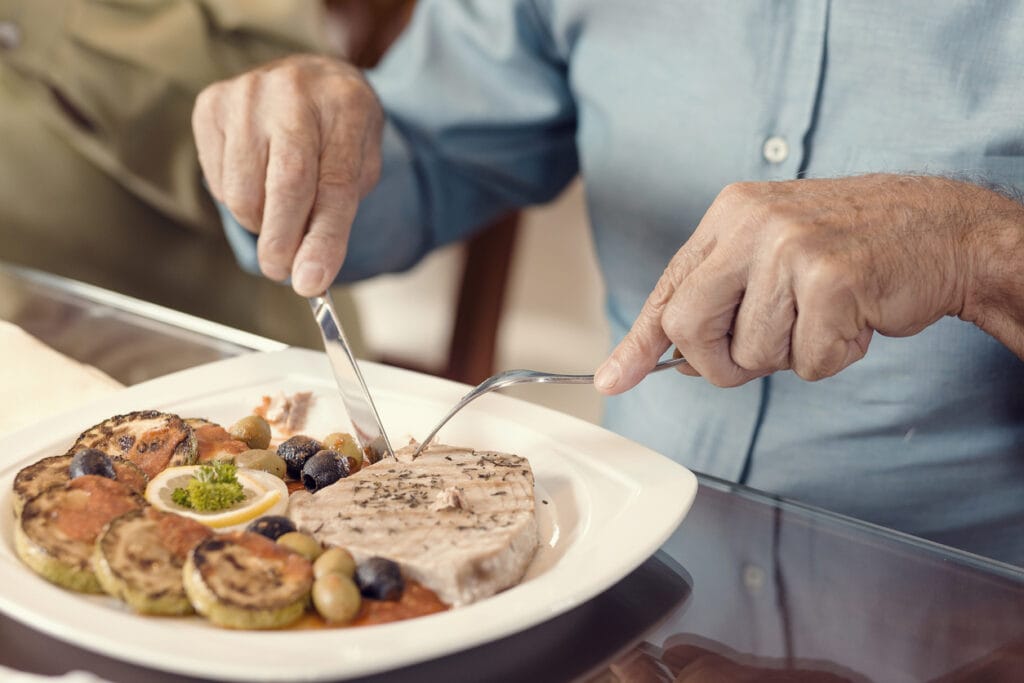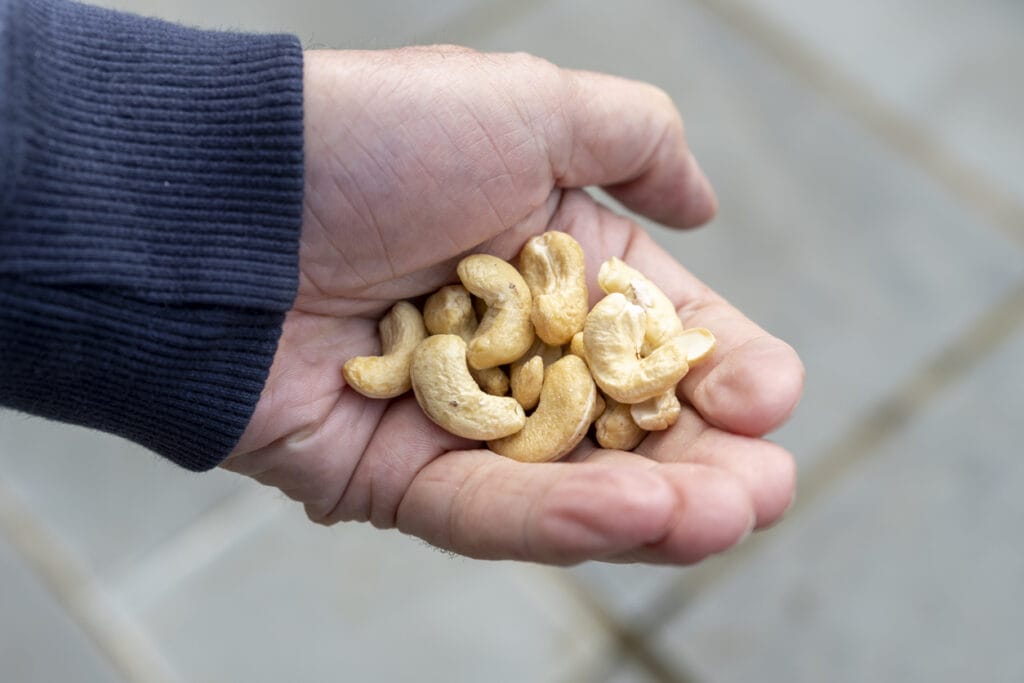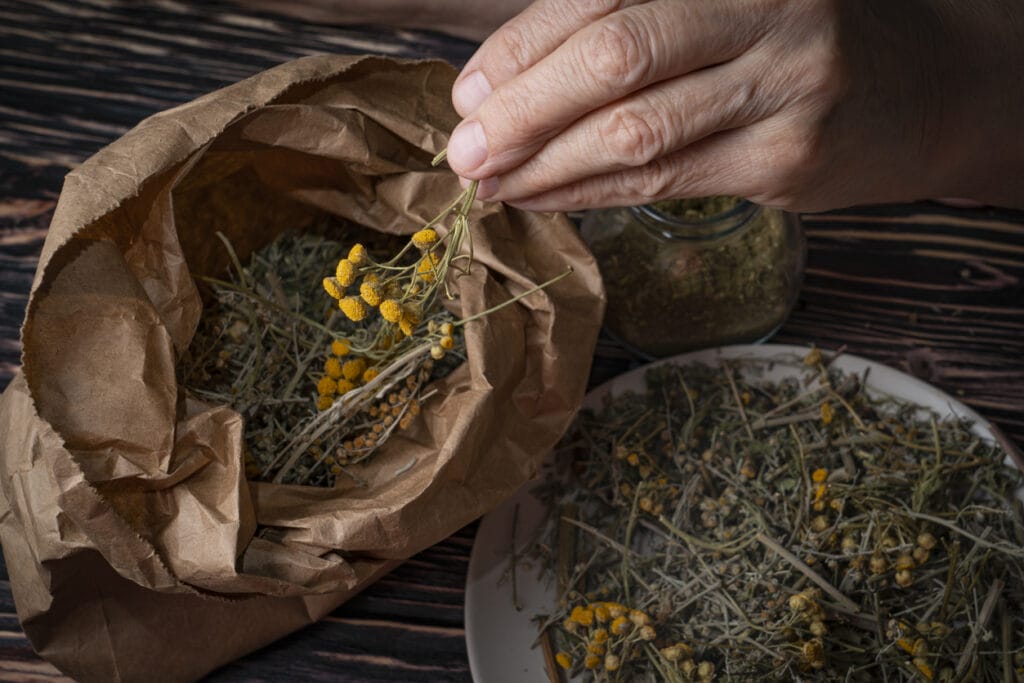Caring for elderly loved ones is a profound responsibility shouldered by family caregivers, encompassing a myriad of roles from emotional support to practical assistance. Among these roles, the management of their health stands as paramount, with dietary choices emerging as a cornerstone.
Family caregivers play a pivotal role in ensuring the well-being of seniors, acting as advocates and companions while also closely monitoring their health status. Within this framework, the influence of diet, particularly the incorporation of anti-inflammatory foods, takes center stage as a means to promote optimal health and vitality in the elderly.
What is inflammation?
Inflammation is the body's natural response to injury or infection, marked by redness, swelling, heat, and pain. It involves a complex interplay of cells and molecules working together to protect the body and facilitate healing. In seniors, inflammation can become chronic, leading to various health issues.
Common Causes
Several factors can contribute to chronic inflammation in seniors:
- Arthritis: Degenerative joint diseases such as osteoarthritis are known triggers for chronic inflammation, often causing pain and stiffness in the affected joints.
- Heart Disease: Conditions like atherosclerosis and other cardiovascular issues can induce inflammation within the arteries, heightening the likelihood of heart attacks and strokes.
- Diabetes: Unregulated blood sugar levels in diabetes can instigate systemic inflammation, worsening complications like nerve damage and organ dysfunction.
- Autoimmune Disorders: Diseases like rheumatoid arthritis and lupus involve the immune system erroneously attacking healthy tissues, resulting in ongoing inflammation.
Identifying Symptoms
Recognizing the symptoms of inflammation in seniors is vital for timely intervention and management. Persistent pain, swelling, joint stiffness, fatigue, and difficulty performing daily activities are common signs that caregivers should be vigilant about.
Consulting healthcare professionals for proper assessment and treatment is essential if any concerning symptoms are observed in elderly relatives.
The Role of Diet in Managing Inflammation
Influence of Diet on Inflammation
Chronic, low-grade inflammation is linked to various health issues, and research indicates that diets rich in processed foods, refined carbohydrates, and saturated fats can worsen inflammation.
Conversely, adopting dietary patterns abundant in fruits, vegetables, whole grains, and healthy fats such as omega-3s can have anti-inflammatory effects. For instance, a study featured in the American Journal of Clinical Nutrition revealed that adhering to a Mediterranean diet, abundant in fruits, vegetables, and fish, significantly reduced inflammatory markers compared to a control diet.
By carefully considering the dietary choices of our seniors and incorporating more anti-inflammatory foods into their meals, we actively contribute to managing inflammation and enhancing their overall health and comfort.
Comparing Food Types
- Pro-inflammatory Foods: These are foods that tend to increase inflammation in the body. Examples include processed snacks high in sugars and unhealthy fats, like cookies, chips, and processed meats.
- Anti-inflammatory Foods: Conversely, anti-inflammatory foods work to calm inflammation and promote well-being. These include colorful fruits and vegetables, whole grains, fatty fish such as salmon and trout, nuts, seeds, and legumes.
General Dietary Guidelines
- Emphasize plant-based meals: Encourage plenty of fruits, vegetables, and whole grains, as they contain antioxidants and nutrients that help combat inflammation.
- Incorporate omega-3 fatty acids: Include sources of omega-3 fatty acids in their diet, such as fish, flaxseeds, chia seeds, and walnuts, known for their anti-inflammatory properties.
- Limit processed foods: Reduce consumption of processed snacks, sugary treats, and fried foods, as they can contribute to inflammation and discomfort.
- Stay hydrated: Ensure they drink enough water and herbal teas to stay hydrated, as dehydration can worsen inflammation.
- Moderate alcohol intake: Advise them to limit alcohol consumption, as excessive alcohol can exacerbate inflammation and weaken the immune system.
Key Anti-Inflammatory Foods
Fruits and Vegetables
Fruits and vegetables are powerhouse foods packed with essential vitamins, minerals, and antioxidants that help combat inflammation and support overall health.
Specific varieties like berries, oranges, and leafy greens are particularly rich in anti-inflammatory compounds. Berries, such as blueberries and strawberries, are loaded with antioxidants known as flavonoids, which have been shown to reduce inflammation and improve cognitive function.
Oranges are high in vitamin C, an antioxidant that helps strengthen the immune system and fight inflammation. Leafy greens like spinach and kale contain vitamins A, C, and K, as well as phytonutrients that possess potent anti-inflammatory properties, making them invaluable additions to a senior's diet.

Healthy Fats
Contrary to popular belief, not all fats are bad for you. Healthy fats, found in foods like olive oil and avocados, are essential for reducing inflammation and supporting heart health.
Olive oil is rich in monounsaturated fats and contains anti-inflammatory compounds such as oleocanthal, which help reduce inflammation in the body.
Avocados are a great source of monounsaturated fats, potassium, and fiber, all of which contribute to their anti-inflammatory properties. Including these healthy fats in our seniors' diet can help protect against inflammation-related diseases and promote overall well-being.

Nuts, Seeds, and Whole Grains
Nuts, seeds, and whole grains are nutritious staples that can play a vital role in managing inflammation in seniors. Almonds, for example, are packed with nutrients like vitamin E and magnesium, both of which have anti-inflammatory effects.
Flaxseeds are rich in omega-3 fatty acids, lignans, and fiber, all of which contribute to their anti-inflammatory properties. Whole grains like oatmeal are high in fiber and contain antioxidants, which help reduce inflammation and support digestive health. Incorporating these foods into our seniors' meals can provide them with essential nutrients while helping to alleviate inflammation and improve overall health.

Spices and Herbs
Spices and herbs not only add flavor to dishes but also offer a multitude of health benefits, including anti-inflammatory effects. Turmeric, a bright yellow spice commonly used in curry dishes, contains a compound called curcumin, which has potent anti-inflammatory and antioxidant properties.
Ginger is another spice known for its anti-inflammatory effects, thanks to its active compound gingerol. Garlic contains sulfur compounds that have been shown to reduce inflammation and lower the risk of chronic diseases.

Incorporating Anti-Inflammatory Foods into a Senior’s Diet
Meal Planning
Meal planning is a cornerstone of maintaining a healthy diet, especially for seniors. When incorporating anti-inflammatory foods into their meals, consider the following practical tips:
- Start with a balanced plate. Aim to include a variety of colors, textures, and food groups in each meal, focusing on whole, minimally processed foods.
- Incorporate a variety of anti-inflammatory foods. Include a mix of fruits, vegetables, whole grains, lean proteins, healthy fats, and herbs/spices known for their anti-inflammatory properties.
- Plan ahead. Take time to plan meals for the week, considering any dietary restrictions, preferences, or health conditions your loved one may have.
- Prepare in advance: Preparing meals and snacks in advance can save time and ensure that nutritious options are readily available when needed.
Recipes for Seniors
Simple and nutritious recipes can make it easier for seniors to enjoy anti-inflammatory foods. Here are some ideas:
- Berry Spinach Smoothie: Blend spinach, mixed berries, Greek yogurt, and a splash of almond milk for a refreshing and nutrient-packed breakfast or snack.
- Baked Salmon with Lemon and Herbs: Season salmon fillets with lemon juice, garlic, and herbs like dill or parsley, then bake until tender and flaky.
- Quinoa Salad with Roasted Vegetables: Toss cooked quinoa with roasted vegetables (such as bell peppers, zucchini, and cherry tomatoes), fresh herbs, and a drizzle of olive oil and balsamic vinegar.
- Turmeric Chicken Stir-Fry: Sauté chicken breast strips with bell peppers, broccoli, and snap peas, then season with turmeric, ginger, and garlic for a flavorful and anti-inflammatory meal.
Challenges and Considerations
Ensuring our elderly loved ones maintain a healthy diet poses various challenges. Addressing dietary restrictions, managing taste changes, and balancing nutrition are crucial. Here are strategies for navigating these effectively:
- Dietary Restrictions: Manage issues like diabetes and allergies by collaborating with healthcare professionals for tailored meal plans. Diligently read food labels and explore alternative ingredients to accommodate restrictions while maintaining flavor.
- Taste and Dietary Changes: Adapt to taste and dietary habit changes with patience and experimentation. Try different flavors and textures, involve your loved one in meal planning, and encourage open communication.
- Balancing Nutrition: Balance nutritious eating with preferred tastes by prioritizing nutrient-dense foods and moderating indulgences. Offer alternatives meeting dietary preferences or restrictions without compromising taste or nutrition.
Benefits of Anti-Inflammatory Foods on Senior Health
Anti-inflammatory foods are rich in antioxidants, vitamins, minerals, and other compounds that help combat inflammation in the body. By incorporating these foods into their diets, seniors can experience a myriad of health benefits, including:
- Reduced risk of chronic diseases: Anti-inflammatory foods have been shown to lower the risk of conditions such as heart disease, diabetes, and certain types of cancer.
- Improved joint health: Seniors suffering from arthritis or other inflammatory joint conditions may experience reduced pain and stiffness by consuming anti-inflammatory foods rich in omega-3 fatty acids and antioxidants.
- Enhanced cognitive function: Some research suggests that anti-inflammatory foods may support brain health and cognitive function, potentially reducing the risk of age-related cognitive decline and dementia.
- Better overall well-being: A diet rich in anti-inflammatory foods can contribute to increased energy levels, improved mood, and a greater sense of vitality and well-being in seniors.





